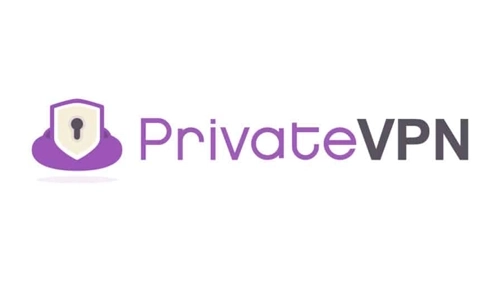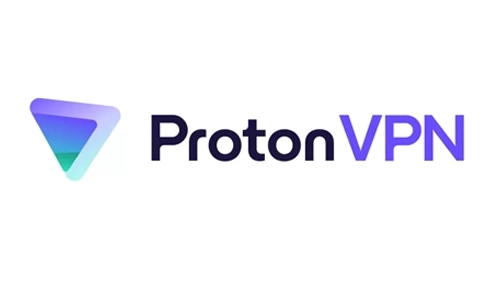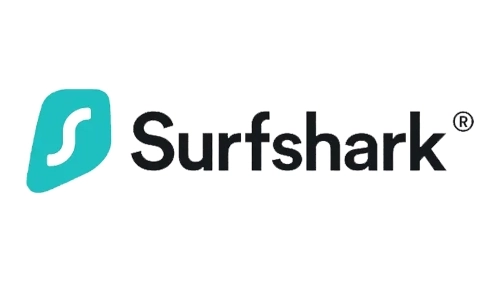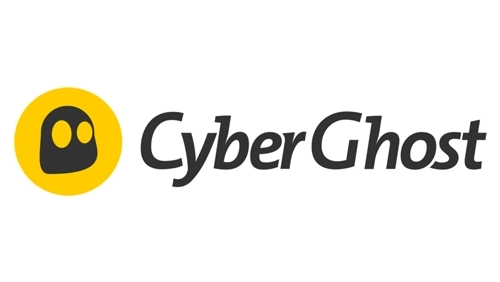Company |
Starting Monthly Price |
Number of Simultaneous Connections |
Optimized Servers (Streaming, P2P or Obfuscated) |
Learn More |
|---|---|---|---|---|
|
Mullvad VPN
|
€5 (approximately $5.50)
|
5
|
No P2P or streaming servers, but offers obfuscation
|
Learn More
|
|
Proton VPN
|
$9.99
|
10 |
Yes
|
Learn More
|
|
IVPN
|
$6
|
2 to 7
|
No streaming or P2P servers, but offers obfuscation
|
Learn More
|
|
NordVPN
|
$12.99
|
10 |
Yes
|
Learn More
|
|
Surfshark
|
$15.45
|
Unlimited
|
No dedicated P2P or streaming servers, but offers obfuscation
|
Learn More
|
|
ExpressVPN
|
$12.95
|
8
|
No dedicated P2P or streaming servers, but offers obfuscation
|
Learn More
|
|
Mozilla VPN
|
$9.99 (plus tax)
|
5
|
No
|
Learn More
|
|
CyberGhost
|
$12.99
|
7
|
Offers dedicated streaming servers but does not support obfuscation
|
Learn More
|
|
Private Internet Access (PIA)
|
$11.95
|
Unlimited
|
No dedicated P2P or streaming servers, but offers obfuscation
|
Learn More
|
|
hide.me
|
$9.95
|
10 |
No dedicated P2P servers, but offers dedicated streaming servers and obfuscation
|
Learn More
|
Fast, Secure, and Anonymous: Top 10 VPNs for Every Need
A VPN, or virtual private network, is a service that secures your internet traffic and anonymizes your browsing. We’ve analyzed 22 of the leading VPN providers, comparing their features and performance, and subjecting each to thorough testing. While PrivateVPN, Proton VPN, and IVPN stand out as the best overall choices for 2024, other options might be more suitable for your particular needs. Explore our in-depth guide to find the perfect VPN for you.
Table of Contents
Our Top Picks
The Best VPNs of 2024
- Mullvad VPN: Best privacy-focused VPN
- Proton VPN: Best free VPN
- IVPN: Best VPN for flexible billing
- NordVPN: Most feature-rich VPN
- Surfshark: Best VPN with identity protection
- ExpressVPN: Best VPN for beginners
- Mozilla VPN: Best Firefox browser extension
- CyberGhost: Best VPN for streaming
- Private Internet Access (PIA): Best VPN for advanced split tunneling
- hide.me: Best cheap VPN with a guarantee
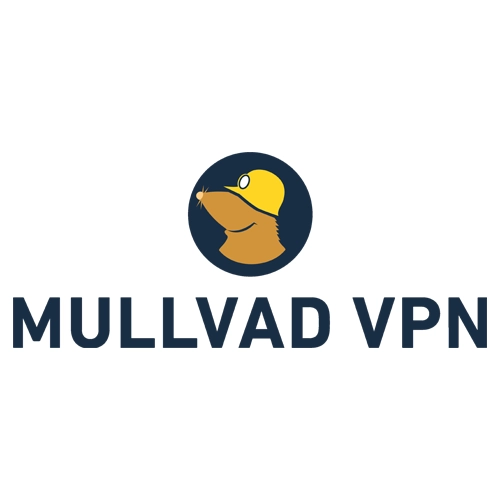
Mullvad VPN
$9.90 Original price was: $9.90.$5.50Current price is: $5.50./month
0.0
0.0 out of 5 stars (based on 0 reviews)
Excellent0%
Very good0%
Average0%
Poor0%
Terrible0%
- Future-ready with stable quantum-resistant tunnels
- Affordable pricing and full transparency
- No emails were collected during the registration
Pros & Cons
Pros:
- Affordable
- Requires no email or account information
- Radically transparency
- Open Netflix access in all regions tested
Cons:
- Awkward desktop interface
- No transparency report or warrant canary
- Servers in a small range of countries
Why We Love It
Mullvad VPN is an outstanding service for individuals who value privacy and transparency. Its numbered account model is relatively unique in the industry and allows users to sign up without an email address, password or username. IVPN is another vendor that uses a similar anonymous registration solution. Cash and crypto payment options provide additional anonymity.
We appreciate that founders Fredrik Strömberg and Daniel Berntsson entirely own Mullvad VPN AB and its parent company, Amagicom AB, and remain actively involved. The VPN provider’s transparency extends to every part of its service, from open-source code and yearly audits to detailed server information and a robust no-logs policy.
Still, its small server network and device limitations may not appeal to everyone. If you’re willing to pay up front for longer terms, some alternatives have cheaper rates for more simultaneous connections on networks extending across double the number of countries with thousands of servers.
Features
Mullvad VPN’s functionality and tools are more than enough for personal use. It features an integrated kill switch, OpenVPN and WireGuard protocols and split tunneling on Windows, Linux and Android devices. The server network is considerably smaller than competitors’ but spread across 45 countries. Mullvad’s browser support is more limited than that of hide.me or Surfshark. Mullvad only works with Mullvad or Firefox-based browsers, whereas rivals typically support Chrome. We like that Mullvad rolls out new features, such as its Defense against AI-guided Traffic Analysis (DAITA), which fights sophisticated artificial intelligence (AI) surveillance. The desktop-enabled quantum-resistant VPN tunnels solve a problem we haven’t encountered yet: powerful quantum computers.Pricing
Mullvad’s gimmick-free pricing model is refreshing. The VPN provider charges €5 (around $5.50) monthly, and you can add funds to your account to pay ahead for a few months, a year or a decade. The rates haven’t increased since Mullvad launched in 2009. Customers paying with accepted cryptocurrencies receive a 10% discount. It offers a standard 30-day money-back guarantee, but the refund doesn’t cover cash or crypto payments.Customer Service
For U.S.-based customers, Mullvad’s customer support options could be a drawback. The Sweden-based team operates on Central European Time. You can email Mullvad’s in-house support team, but they only respond during weekday office hours. So, if you live in America and have an issue after lunch, chances are good that Mullvad offices are closed. If you’re wondering how responsive Mullvad’s customer support team is, though, I can tell you Mullvad does not play around. I sent an email asking for help with a technical issue, and I received a response in under an hour, which is exceptional.
What To Consider
Specifications
Blocks Ads: No
Simultaneous VPN Connections: 5
500+ Servers: Yes
Server Locations: 38 Countries
Geographically Diverse Servers: No
Free Version: No
Comparison Chart
Scroll left to see more
How Do We Test
At Mvstlove, we assess virtual private networks (VPNs) by combining in-depth product analysis, thorough hands-on trials, and feedback from actual users. You might notice slight differences in ratings across various reviews. This is because certain products are examined for multiple purposes, which may necessitate minor adjustments to our evaluation methods to better suit the specific context.
For instance, a VPN that excels for business applications might not be ideal for streaming Netflix, or vice versa. In such cases, we clarify when a product is being evaluated within a particular category and how the specific criteria used have influenced our ratings. To gain a deeper understanding of our VPN evaluation process, explore our content.
We review dozens of different VPNs for a wide range of use cases according to relevant features and considerations, and therefore the weights and features evaluated for each product category will differ. With that in mind, we condense our ratings into a set of general considerations.
|
Pricing
|
We emphasize value for the money to ensure you get the best product at the best price.
|
|
General Features
|
We ensure the VPNs we recommend contain the essentials, such as DNS protection and multi-factor authentication, to help keep you safe. We also give weight to some “nice-to-haves,” such as browser extensions and multi-device capabilities that give you more flexibility.
|
|
Speed
|
We believe a good VPN shouldn’t slow you down. That’s why we conduct monthly speed tests of major VPNs and use these results to help inform our results.
|
|
Privacy and Trust
|
The best VPNs protect your privacy through features such as IP masking, data encryption and no-log policies. In addition, they’re generally located in countries that do not share surveillance data.
|
|
Our Own Experience
|
Our expert team has in-depth knowledge of each VPN we cover, and we test and use them regularly.
|
Extra Perks
Beyond the core functionality, we also consider additional features that are common in a particular category, even if they might not be essential for every user. These aren’t as heavily weighted as general features. For VPNs, these extra perks can include:
- Browser Extensions: These handy tools let you quickly and easily connect to a VPN within your favorite browser. While not a must-have for everyone, they can be a real time-saver for certain users.
- Simultaneous Connections: This feature determines how many devices you can connect to your VPN account at once. It’s especially useful for businesses with multiple employees, as it allows them to secure all their devices with a single subscription.
- Server Locations: The more countries a VPN has servers in, the wider your options for connecting to different regions. This is particularly helpful for accessing region-locked content like streaming services.
The Speed Factor
Speed is a critical aspect of any VPN service. Since VPNs reroute your internet traffic, they can potentially slow down your connection. This can be a major drawback, especially for streaming.
To help you make informed decisions, we conduct monthly speed tests. We measure your internet speed without a VPN to establish a baseline, then test each VPN using the nearest server location. The results are displayed on the relevant product pages.
Others We Liked
What To Consider
Most Frequently Asked Questions
What Is a VPN?
VPNs are virtual private networks that encrypt your data and hide your digital footprint. By masking your online activity, VPNs can help you stay anonymous while you email, chat, or browse the internet.
When you access the internet, your device connects to a server that hosts the website or service you’re visiting. This server can collect information about you and your device, which may compromise your privacy. A VPN service masks your IP address by routing your connection through a remote server. This prevents websites from tracking your online activity back to you.
How To Choose the Best VPN
When selecting a VPN, trust is paramount. You’re entrusting your online privacy to the provider, so it’s crucial to choose one with a strong privacy policy and a clean track record. Avoid providers known for logging user data or experiencing significant data breaches.
A robust network of servers across various locations is another key factor. A larger network generally means faster speeds and more flexibility in choosing servers. Compatibility with your devices is essential, whether it’s your PC, smartphone, or router.
Performance and reliability are equally important. While VPNs can sometimes slow down your internet, a good provider will minimize this impact. Look for consistent speeds, low latency, and minimal downtime. WireGuard-supported VPNs often offer the best performance.
Server Count and Locations
A higher number of servers typically translates to more options for connecting, ensuring faster and more reliable connections. A wider range of server locations provides greater flexibility for accessing geo-restricted content and bypassing censorship. Ideally, your VPN provider should have servers in privacy-friendly countries with strong data protection laws. For optimal speed and performance, choose a server located closest to your physical location.
Speed and Performance
Speed is a critical factor in VPN performance. A slow VPN can hinder your online experience, leading to sluggish page loading, buffering during video streaming, and lag in real-time applications.
Key performance metrics to consider include:
- Latency: Lower latency means faster response times, crucial for online gaming and video conferencing.
- Bandwidth: Higher bandwidth allows for smoother streaming of high-definition content and large file transfers.
- Uptime: A high uptime percentage ensures reliable and uninterrupted service.
To assess a VPN’s performance, use online speed test tools like Cloudflare’s Internet Speed Test. User reviews and the provider’s uptime records can also provide valuable insights.
How Much Does a VPN Cost?
| Company | Free Plan | Base Plan (Monthly Billing) | Base Plan (Annual Billing, Monthly Cost) | Highest-Priced Plan (Monthly Billing) |
|---|---|---|---|---|
|
Mullvad VPN
|
No
|
€5 ($5.48)
|
€5 ($5.48)
|
€5 ($5.48)
|
|
Proton VPN
|
Yes
|
$9.99
|
$6.66
|
$12.99
|
|
IVPN
|
No
|
$6
|
$60
|
$10
|
|
NordVPN
|
No
|
$12.99
|
$11.59
|
$15.99
|
|
Surfshark
|
No
|
$15.45
|
$4.98
|
$17.95
|
|
ExpressVPN
|
No
|
$12.95
|
$9.75
|
$12.95
|
|
Mozilla VPN
|
No
|
$9.99 (plus tax)
|
$4.99 (plus tax)
|
$9.99 (plus tax)
|
|
CyberGhost
|
No
|
$12.99
|
$4.75
|
$12.99
|
|
Private Internet Access (PIA)
|
No
|
$11.95
|
$3.33
|
$11.95
|
|
hide.me
|
Yes
|
$9.95
|
$3.75
|
$9.95
|
VPN costs can fluctuate depending on the provider, with our top choices ranging from €5 ($5.48) to $15.45 per month. Annual plans often offer discounts but require a larger initial investment. We generally advise starting with a one-month subscription to test the VPN apps and verify their compatibility with your online habits.
Less expensive VPNs may not provide live customer support. Surprisingly, some pricier services claim to offer 24/7 live chat, but we’ve encountered difficulties bypassing automated chat systems. If you opt for a more expensive VPN due to superior support or specific features, be sure to test them within the refund period.
If you’re interested in promotional deals and long-term plans (one to three years), carefully review the terms before committing. Some VPN providers limit discounts to new subscribers, so starting with a one-month plan might disqualify you from future promotional rates.
Regardless of your choice, all reviewed services offer refunds for website purchases made with a credit card. Other payment methods or in-app purchases may have different terms. Set a reminder and allow ample time to initiate a refund if you’re dissatisfied with the service.
How do I connect to a VPN?
Connecting to a VPN is typically a straightforward process. Create an account, download the app, log in, and choose a server. While advanced options like split tunneling and protocol selection are available, the core connection process is kept simple. If you encounter difficulties, consult the VPN’s website or reach out to their customer support team for tailored assistance.
What's the difference between a proxy and a VPN?
Both proxies and VPNs can mask your IP address, but they work in different ways and offer varying levels of security and privacy.
Proxy Servers
- Basic masking: A proxy server simply reroutes your internet traffic through its server, hiding your original IP address.
- Limited security: Proxies generally don’t encrypt your traffic, making it vulnerable to interception.
- App-specific: Most proxies only work with specific apps or browsers, limiting their overall protection.
- Faster speeds: Since they don’t encrypt traffic, proxies can be faster than VPNs.
VPNs (Virtual Private Networks)
- Enhanced security: VPNs encrypt your internet traffic, making it much harder for third parties to intercept and monitor your online activities.
- System-wide protection: VPNs typically work at the system level, protecting all your internet traffic, regardless of the app or browser.
- Stronger privacy: By hiding your IP address and encrypting your traffic, VPNs offer a higher level of privacy.
- Slower speeds: Encryption can slow down your internet connection compared to a proxy.
When to Use Which
- Proxy: If you need to bypass geo-restrictions for a specific website or app and don’t prioritize strong security, a proxy might be sufficient.
- VPN: If you value strong security, and privacy, and want to protect all your internet traffic, a VPN is the better choice.
Why Trust Mvstlove
Mvstlove is committed to providing unbiased rankings and information with full editorial independence. We use product data, strategic methodologies and expert insights to inform all of our content to guide you in making the best decisions for your business journey.

